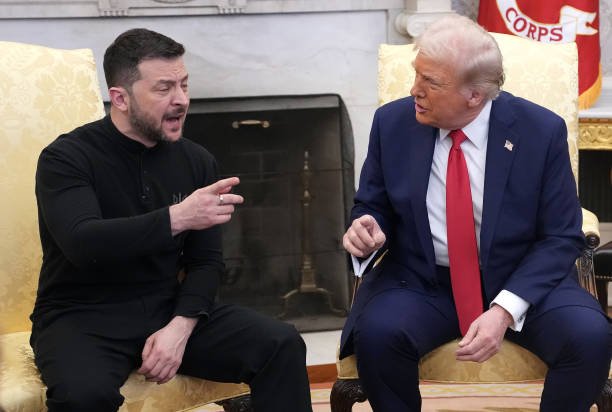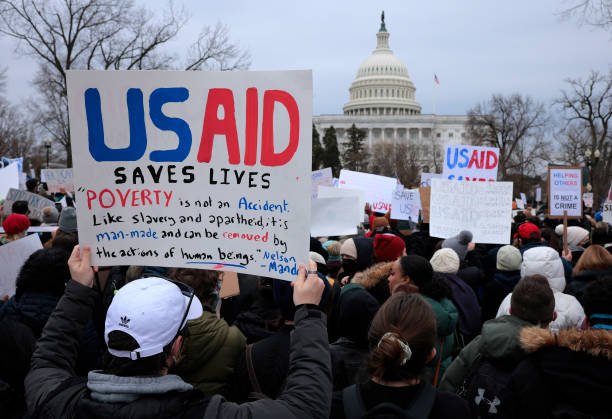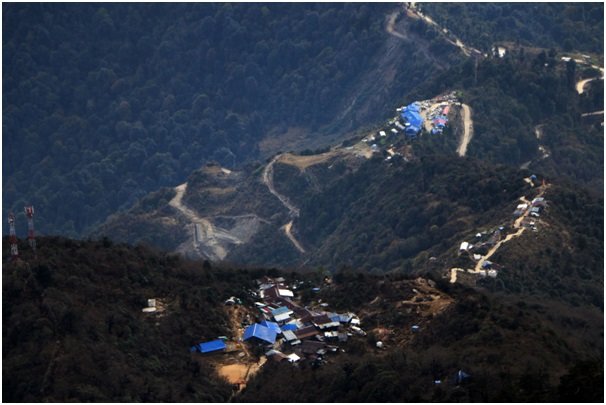Proper Use of Diplomacy is Needed
Every country has a Ministry of Foreign Affairs responsible for managing foreign affairs and foreign policy. In addition to the country's Ministry of Foreign Affairs, other ministries, international donor agencies, and organizations also play diplomatic roles. Diplomacy is necessary for the effective implementation of foreign policy. Without adequate diplomacy, a nation cannot develop effectively, leading to the suffering of its people.
In Nepal, diplomatic relations with Britain were established in 1816 during the Rana period, allowing the country to observe the outside world. Due to the diplomacy of the then Prime Minister Jung Bahadur Rana, new districts like Banke, Bardia, Kailali, and Kanchanpur became part of Nepal. The honor and reputation of Nepal and Nepalis have remained intact to this day through the diplomatic efforts of sending Nepali Gorkhas to Britain and India. Similarly, thanks to BP Koirala's diplomacy, we can proudly claim Mount Everest as our own. Nepal has also gained a unique identity in the world community through its involvement in United Nations peacekeeping missions.
Over time, diplomacy has evolved into various forms and types, including public diplomacy, economic diplomacy, cultural diplomacy, science diplomacy, cyber diplomacy, energy diplomacy, regional diplomacy, education diplomacy, health diplomacy, and sports diplomacy. Diplomacy plays a crucial role in the development of a nation. This article emphasizes how diplomacy can contribute to enrichment.
To increase foreign investment
To increase foreign investment, diplomacy can be utilized. For this, it is essential to establish understanding and cooperation between political parties. Political stability is crucial since policy changes and foreign policy implementation depend on the government. Timely appointments of ambassadors, assigning appropriate responsibilities to ministry staff, ensuring qualified ambassadors, and minimizing vacancies in foreign missions are important factors that should be addressed responsibly by the parties involved.
When Indian Prime Minister Narendra Modi visits different countries, he meets with the Indian diaspora, engages with businessmen, and encourages foreign investors to invest in India. The stability of the Indian government under Narendra Modi's leadership since 2014 has facilitated diplomatic work. To attract foreign investment in Nepal, it is necessary to study the potential of the country's resources, such as its immense natural resources like uranium and metals required for electric vehicles like lithium, cobalt, and nickel. The government should create a blueprint to assess their feasibility. Diplomats also play a significant role in assuring investors that the country is safe and worth investing in.
Diplomatic Footprint
In Nepal, the government must recognize the importance of think tanks, such as the Institute of Foreign Affairs Studies and Policy Research Institute under Tribhuvan University and develop competent foreign affairs personnel. Additionally, as the number of Nepalis living abroad increases, it is important to establish embassies in areas with larger Nepali populations to address various problems. Efforts should be made to increase the diplomatic footprint by expanding the foreign workforce.
It is necessary for the government to understand the importance of Think Tank CNAS, Foreign Affairs Studies Institute, and Policy Research Institute under Tribhuvan University and make the foreign affairs staff competent. Similarly, the number of Nepalis abroad is increasing, but the number of embassies is low and there are no embassies in places where there are more Nepalis, so various problems have arisen. Therefore, enhancement of the diplomatic footprint is needed by increasing Embassy and Foreign Ministry officials.
Taking advantage of the geopolitical situation can lead to diplomatic success. The diplomatic approach adopted by King Mahendra during the Cold War brought subsidies from various countries, factory openings, assistance from USAID to combat malaria, improvements in child mortality rates, advancements in women's conditions, and support from the Soviet Union, India, China, and the United States in building highways. Nepal has also strengthened its relations with monarchies like Japan, Spain, and Thailand and in the Gulf countries.
As the power of the United States gradually declines and the influence of the dollar wanes, neighboring countries like India and China are emerging as strong powers. The world is transitioning from a unipolar to a bipolar to a multipolar era, where multiple nations hold significant influence. This changing global landscape presents an opportunity for countries like Nepal to benefit. Nepal can adopt climate diplomacy, host international climate conferences, and invite influential figures as tourism ambassadors to attract attention and support. However, to seize these opportunities, the country must invest in infrastructure development and ensure security.
For Economic Growth
Diplomacy also plays a crucial role in economic growth. China's soft policy towards the West, facilitated by diplomatic efforts led by Deng Xiaoping, has transformed China. If China had aligned closely with the Soviet Union during the Cold War, it would have faced significant challenges in achieving its current position.
In the case of Japan, the country suffered defeat in World War II largely due to the intervention of the United States. The US was motivated by concerns over the potential growth of communism in Japan and took action to safeguard its interests.
Currently, India's diplomacy is strengthening its friendship with Russia, resulting in cost savings through the purchase of cheap crude oil. India's involvement in alliances like the Quad, BRICS, and the Shanghai Cooperation Organization further demonstrates the role of diplomacy in economic growth.
Boosting Tourism Sector
Promoting trade and tourism through diplomacy can also contribute to economic development. Sufficient resources and budget should be allocated to the Ministry of Foreign Affairs to support these efforts. For instance, India recently organized the Global Buddhist Summit, attracting thousands of representatives from different countries. As part of the Buddhist circuit, a visit to Lumbini in Nepal completes the spiritual journey for many tourists. The government's goal to make the next decade (2023-2033) the tourism decade and attract 3.5 million tourists annually requires strategic planning and policies to appeal to the spending power of Indian youth. Increasing the number of tourists from India and China should be a targeted objective.
By increasing external presence
Increasing external presence through active participation in regional associations is essential. Prime Minister Prachanda's loss even when China invited him to Boao Forum, Nepal was also not invited to the Raisina Dialogue in India, it shows our diplomatic failure. Our politicians did not give importance to representing the nation and maintaining a strong presence in international events. Participating in such programs and voicing opinions can contribute to the country's reputation.
Lastly, Prime Minister Prachanda's recent visit to India focused on transportation, connectivity, and power export. However, unresolved border disputes and the pending EPG report have hindered progress, leading to the denial of air routes for Nepal's two international airports due to geopolitical reasons. While India previously embraced the 'neighborhood first' policy during Prime Minister Modi's first term, there is a perceived reluctance to address Nepal's interests currently. Nepal's Prime Minister Prachanda was very enthusiastic and said that he could leave the encroached Kalapani region, instead of that, he could think about the option of unhindered Nepalese entry to the eastern border crossing into Bangladesh. We have to maintain balanced relations with both India and China through Diplomatic skills. Nepal's diplomacy must demonstrate maturity and effectively identify opportunities presented by the second Cold War 2.0, just as it did during the first Cold War.






Leave Comment